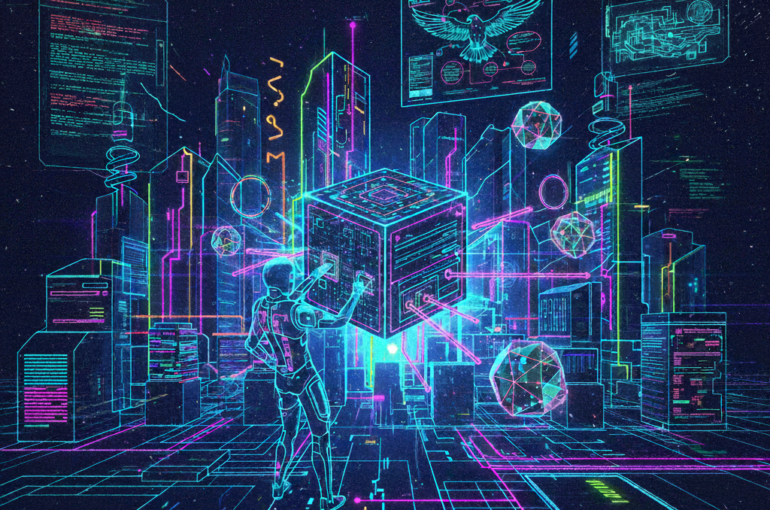AI in the Caribbean: A Beacon of Hope in the Fight Against Climate Change
The Caribbean, a region known for its pristine beaches, vibrant cultures, and diverse ecosystems, is facing an unprecedented challenge: climate change. Rising sea levels, more frequent and intense hurricanes, and prolonged droughts threaten the very existence of these island nations. According to the World Bank, the Caribbean could face annual losses of up to 11% of its GDP by 2100 due to climate change impacts. However, amidst this crisis, a new tool emerges as a potential game-changer: Artificial Intelligence (AI). By harnessing the power of AI, the Caribbean is finding innovative ways to adapt to and mitigate the impacts of climate change.
One of the most promising applications of AI in the Caribbean is in the field of disaster management. With the increasing frequency and severity of hurricanes, it is crucial to have accurate and timely predictions to minimize loss of life and property damage. AI-powered weather forecasting models, fed with vast amounts of historical and real-time data, can provide more precise and localized predictions than ever before. These models can simulate various scenarios, allowing authorities to make informed decisions on evacuation plans, resource allocation, and infrastructure reinforcement. In fact, a study by the National Oceanic and Atmospheric Administration (NOAA) found that AI-enhanced hurricane forecasting models could improve the accuracy of hurricane intensity predictions by up to 20%.
Moreover, AI can play a vital role in post-disaster recovery efforts. Drones equipped with AI-powered image recognition software can quickly assess the extent of damage, identifying areas that require immediate attention. This technology can also be used to locate survivors, optimize search and rescue operations, and distribute aid efficiently. In the aftermath of Hurricane Maria, which devastated Puerto Rico in 2017, AI-assisted drones were deployed to map the damage and identify areas without power, demonstrating the technology’s potential to save lives and speed up recovery. The use of AI-powered drones reduced the time required for damage assessments by a staggering 40%, according to a report by the World Economic Forum.
Another area where AI can make a significant impact is in the management of natural resources. The Caribbean is home to a wealth of biodiversity, including coral reefs, mangroves, and tropical forests, which are not only essential for the region’s ecosystems but also act as natural defenses against climate change. AI can help monitor the health of these ecosystems by analyzing satellite imagery and sensor data to detect changes in vegetation cover, water quality, and wildlife populations. This information can guide conservation efforts and support the development of sustainable land-use practices. In Belize, an AI-powered system called the “Mapping Ocean Wealth” project has been used to map and value the country’s coral reefs, revealing that they contribute an astounding $559 million annually to the economy through tourism, fisheries, and coastal protection.
In the realm of renewable energy, AI is revolutionizing the way the Caribbean harnesses its abundant solar and wind resources. By analyzing weather patterns, energy consumption trends, and grid performance, AI algorithms can optimize the integration of renewable energy into the power grid. This not only reduces the region’s dependence on fossil fuels but also enhances the reliability and efficiency of the energy supply. In Jamaica, for example, an AI-powered microgrid system has been implemented to manage the island’s solar energy production, resulting in a 30% reduction in energy costs and a 20% decrease in carbon emissions.
The Caribbean is also exploring the use of AI to tackle the pressing issue of food security. Climate change is affecting agricultural productivity, with rising temperatures, changes in rainfall patterns, and increased soil salinity posing significant challenges to farmers. AI-powered precision agriculture techniques can help farmers optimize crop yields by providing real-time information on soil moisture, nutrient levels, and pest infestations. By analyzing this data, AI algorithms can recommend the most effective irrigation schedules, fertilizer applications, and pest control measures, ensuring sustainable food production in the face of climate change. In the Dominican Republic, an AI-driven platform called “AgroNet” has helped farmers increase crop yields by 30% while reducing water usage by 20%.
However, the successful implementation of AI in the Caribbean requires more than just technology. It calls for collaboration between governments, academia, the private sector, and local communities. Capacity building and education are crucial to ensure that the region has the necessary skills and knowledge to develop and maintain AI systems. Moreover, ethical considerations must be at the forefront of AI development, ensuring that the technology is used in a transparent, accountable, and inclusive manner. The Caribbean Artificial Intelligence Initiative, launched in 2019, aims to foster regional cooperation and promote the responsible development and deployment of AI technologies across the Caribbean.
As the Caribbean continues to grapple with the impacts of climate change, AI offers a glimmer of hope. By leveraging this transformative technology, the region can enhance its resilience, protect its natural heritage, and build a sustainable future for its people. The road ahead may be challenging, but with the power of AI, the Caribbean is well-equipped to face the uncertainties of a changing climate head-on. In the words of the celebrated Caribbean poet, Derek Walcott, “The sea is history,” and with AI by its side, the Caribbean is ready to write a new chapter in its story of resilience and adaptation. The potential is vast, and the future is bright – a recent report by PwC estimates that AI could contribute up to $15.7 trillion to the global economy by 2030, and the Caribbean is poised to be at the forefront of this transformation.
ASK THE CEO
ASK THE CEO is our way of explaining what A.I. means for Jamaica. Have questions? ASK.
Here are some questions our audience have ask before
What are the common uses and applications of AI?
AI is used for contract analysis, object detection and classification, image recognition, content distribution, predictive maintenance, data processing, automation of manual tasks, and data-driven reporting1
What are intelligent agents, and how are they used in AI?
Intelligent agents are autonomous entities that use sensors to perceive their environment and actuators to perform tasks or achieve goals. They can be simple or complex and can be programmed to learn and improve.
Other articles
-

Is Artificial Intelligence the same as Machine Learning?
In the rapidly evolving world of technology, terms like Artificial Intelligence (AI) and Machine Learning (ML) are often used interchangeably. However, while they are closely related, they are not the same thing. In this blog post, we’ll dive into the intricacies of AI and ML, unravel their differences, and explore how they are shaping our […]
Enroll -

The AI-Powered Holiday: Smart Technology for Deeper Human Connection
The scent of cinnamon and pine fills Sarah’s kitchen as she reviews her holiday timeline on her tablet. What might appear to be simple meal planning actually represents a sophisticated collaboration between human intention and artificial intelligence. Her AI assistant has analyzed three years of family preferences, dietary restrictions, and cooking success rates to suggest […]
Enroll -

AI Agents Are Rewriting the Rules of Cyberespionage
The digital battlefield has evolved beyond recognition. While cybersecurity experts once tracked individual hackers and their signature malware, today’s threat landscape resembles something closer to a biological ecosystem. Autonomous AI agents now operate independently, learning from failures, adapting to defences, and coordinating attacks with a sophistication that would make military strategists pause. Recent intelligence reports […]
Enroll -

Caribbeans Can Win the World Cup with AI – The Island Blueprint for Global Football Glory
When people speak about the World Cup they often picture Europe or South America. Yet the Caribbean has entered a rare moment in football history. Curaçao has already qualified for 2026. Haiti is in. Jamaica and Suriname are still pushing through the playoffs. This is the first time in living memory that the region has […]
Enroll

